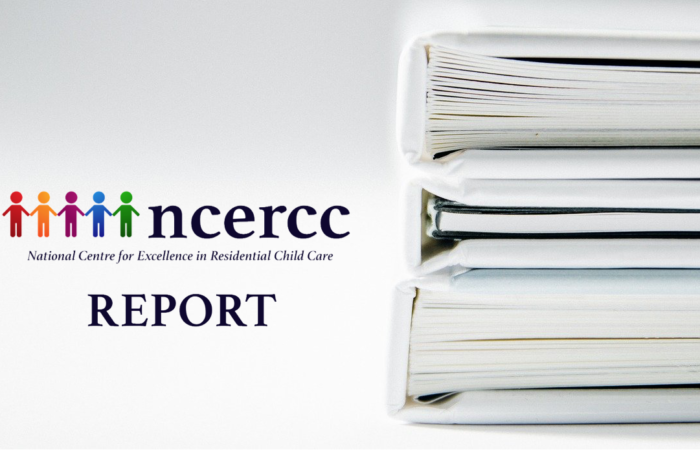
The English Care review – a sister or brother for a review like no other
This is a proposal for children in care and the professionals working with and for them in England to proactively propose what they want from a care review.
Reviews such as this has the potential to be are sometimes described as a “once in a lifetime” opportunity to bring about positive change. A “lifetime” in care can be as much as 18 years, commonly much less, and frequently only a matter of months. The care review must consider all the varying lifetimes if it is to be considered to a success.
Our experience is that children in care and their professionals are idea rich. It is imperative that these collective ideas must structure the care review.
We need to be on the front foot.
We need to raise our voices – now! If we don’t make known what is in our minds, then our minds will be made up for us as decisions are taken without ‘us’.
We need to be proactive not reactive! We have the authority to be proactive, this stems from the care review being about us, who we are and what we do.
Throughout our careers we have always approached situations with the understanding that we should no longer accept the things we cannot change; we should change the things we cannot accept.
On this understanding we think children and professionals have a responsibility to children in and who may enter care in the future to work for them and with them to make clear what we are thinking.
We should enable the care review to start as we mean it to carry on.
If the care review is announced, then those in care and working with and for care may only react in our thinking; if this is the case then it’s already too late. It could be a case of making something less bad perhaps, rather than making it good from the start.
We appreciate the reasons, maybe funding, or survival, or incorporation, that organisations working for children’s welfare may not feel able to take a proactive stance.
This means there needs to be a new gathering of like-minded people, younger and older.
Some maybe individuals, some may represent organisations such as children in care councils, or children’s organisations – statutory and voluntary, some maybe from beyond the care world.
We know these people exist; we have met a lot of them over the years. Can we come together?
The English care review needs ambition to be the sister or brother of the Scottish Care Review that has been described as a ‘a review like no other’.
What made it a ‘review like no other’ and how should that focus our professional and ethical ambition in England?
A fundamental of the Scottish review was the ambition to be ‘putting love at the heart of the care system’.
Ofsted in their report on fostering matching have just reported that this is what children seek, in itself and in many other demonstrable ways, not just the direct care but the structures and systems too. Care without love is not care.
“The more efficient you are at doing the wrong thing, the wronger you become. It is much better to do the right thing wronger than the wrong thing righter. If you do the right thing wrong and correct it, you get better” (Russell L Ackoff)
What do we think is wrong? The Children’s Commissioner sees the system is broken. Indeed is there a significant flaw in describing it as a system at all? The Cambridge dictionary states that a system is “a set of connected things that operate together”. Our ‘care system’ has developed and been changed, added to, perhaps refined for many years but the connected things have in some instances become largely unconnected and at times these connected or unconnected parts most certainly do not “operate together”.
If, for now, we continue to describe it as a system then how do we, collectively, see it being put right and kept right?
Reflecting on the Scottish review James Anglin at the SIRCC conference 2019 looked at a typology of reviews1 across the world. Here they are, in his words:
1 A Review Like No Other’: Putting Love at the Heart of the Care System James Anglin SITCC 2019 conference https://www.celcis.org/files/9515/5958/1057/2019_Vol_18_No_2_Anglin_J_Review_like_no_other.pdf
Auspices – reviews are almost always government initiated
Review ethos – typically these include a belief in expert professional opinions and academic research.
System focus – usually one of: child welfare, child protection or children-in-care.
Purposes – modify the system, enhance practice, bring cost-efficiency, or make policy changes.
Precipitating factor(s) – regrettably, usually a death of a child, an abuse scandal, or a system/political crisis.
Reviewers – characteristically judges, lawyers, or senior (ex-) civil servants.
Design of review – single expert or team of professionals with some (often minimal) consultation.
Processes/Activities – select interviews, invited submissions, case record and policy analysis, literature reviews.
Outputs – a final report with findings and recommendations (often poorly implemented, if at all).
We’ve taken these as prompts for our thinking. We’re sharing our thoughts and encouraging debate and discussion.
It’s risky, but we think not as risky as what we are doing now, according to the Children’s Commissioner.
We think there is a greater risk of doing nothing, and silently waiting for others to determine the care review.
Here’s our thinking.
We’ve heard the Minister for Children and the Secretary of State for Education talk about ‘our’ Care Review.
We are unclear as to who is included in their definition of ‘our’.
From discussions we have had with young people it is clear they see ‘our’ as meaning ‘for’, and, importantly, ‘with’ them.
The Care Experienced Community are saying the same.
Professionals are standing alongside children in care and care experienced people taking a stance of ‘nothing about us without us’’.
The Care Review ethic it seems to this collective ‘we’ is anticipating is one that acts on behalf, and on, society.
Imagine how different things would be if childhood, children, and care were at the heart of government.
The Care Review needs a wide and deep remit. It needs imagination.
The Care Review needs first to establish the values and principles, then the policy and practice needed, before looking at the pragmatics that will deliver. A very different conclusion from this theory of change than starting the other way.
The Scottish review was initiated by their First Minister, Nicola Sturgeon, personally, rather than a government department. She made it very clear that she and the review would be accountable to young people in and from care.
England has an opportunity for this not to be a unique situation.
The Prime Minister, Boris Johnson, must lead and inspire the review – not delegate it as if it were of lesser importance than the things, he devotes his time to. He must evidence that he sees the future of our children – vulnerable and not so – as fundamental to the well-being of the country.
The Care Review needs to be values driven.
It is always surprising to find children’s organisations that are unclear about their values. Sometimes they are absent and have not been thought about. Having values conscious is the antiseptic to a political agenda or ideology. In Scotland the values were compassion, caring, sense of accountability and commitment to the well-being of the young people of Scotland.
Scotland were clear that the review was not focussing on childcare or child welfare system, but rather on the experiences and well-being of the children.
The chair was clear that the review was not about changing a system, but rather creating new and positive experiences for the young people.
There was purpose to the ambition, simply stated, ‘to have the best care system in the world’.
Nothing needs to be ruled out, all needs to be ruled in.
Positive experiences come through positive care.
Positive care comes from and through a positive childhood being understood as the goal for all children. A good childhood for all creates a good childhood for children in care. Be clear about what we are seeking to precipitate.
The leadership of the review needs to include children in care, care experienced people as well as professionals.
A chair who knows how the daily lives of young people in care are affected by childcare practice is essential. To establish reflective space it needs to be someone not from the existing ‘care establishment’. The Scottish Independent Care Review was chaired by a woman with lived experience in care and with astute skills of analysis and a fierce sense of accountability to the young people of Scotland. She refers to her role as being a ‘choreographer’, and she is clear that this review must not take her name, and resists any such label. This is most unusual and reflects the ethos she is championing for this process. There is nothing here we should not, unashamedly, copy.
The design of review was ‘emergent’ encompassing four stages (orientation, discovery, journey, and destination).
The review took time, three years. However, the review did not have to wait for its conclusion to initiate changes in practices.
About 2,000 individuals took part in working groups over each stage of the process. More than half of those engaged had lived experience in care. In the journey stage, there was extensive communication and collaboration to link together the various working groups and themes being examined. It clearly is possible for this unprecedented involvement to happen. It creates a commitment to ongoing change after the formal review process is completed.
If hearts and minds are changed, behaviour is likely to follow, mobilising people as part of the review means people are likely to be inspired to make the review reality.
By all of the above the review affected attitudes and practices as it unfolded, creating meaningful change before any final reporting and recommendations.
We do not aspire to fix something that is broken but to design something that is a world leading system – “a set of connected things that operate together” for the children on the cusp of and in care.
That is our ambition.


